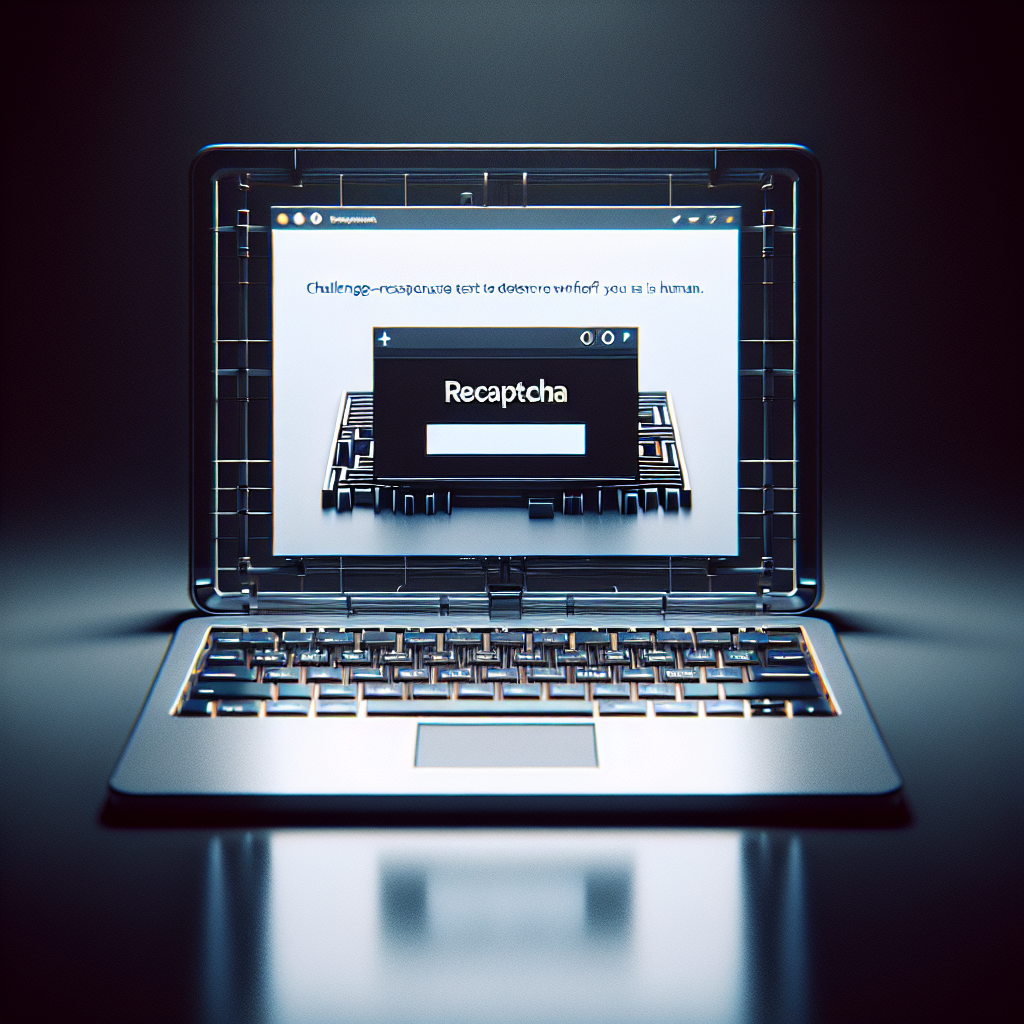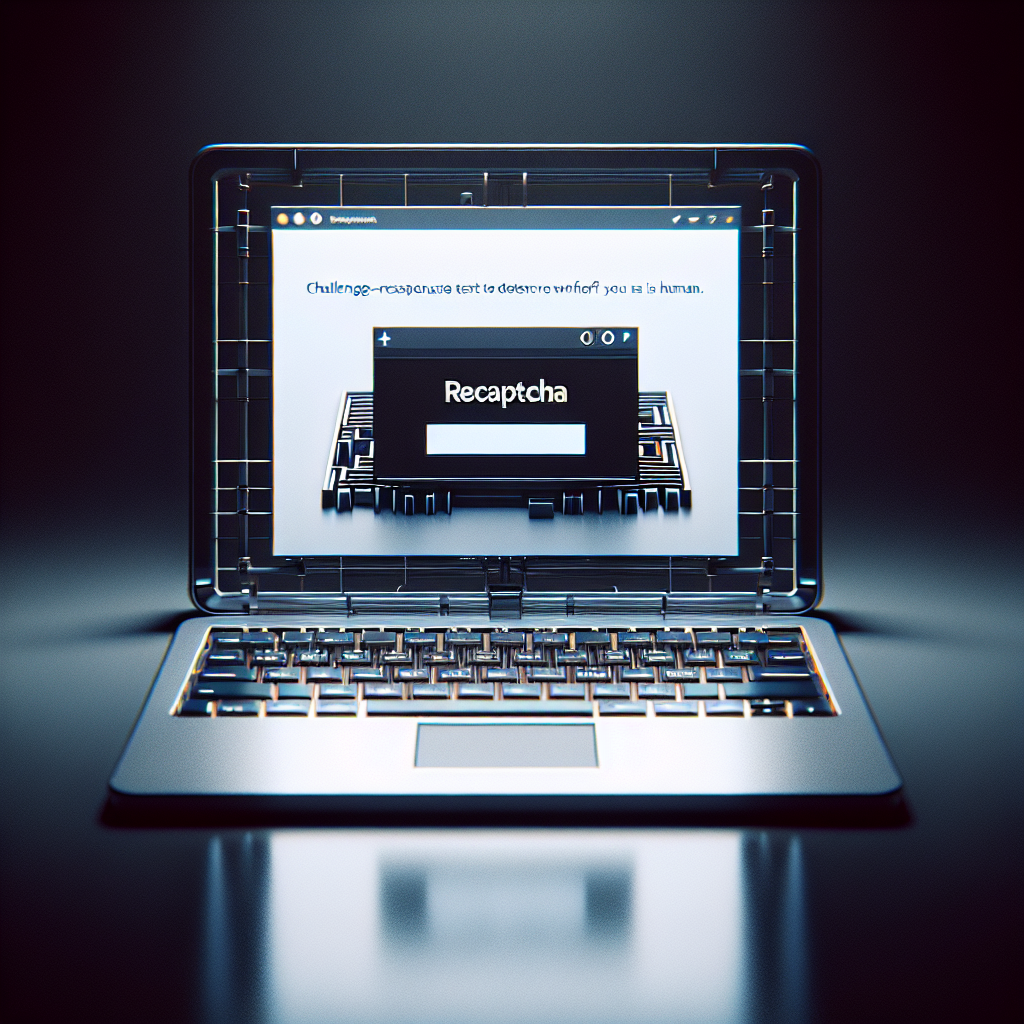Imagine this scenario: you’re browsing the internet, visiting a website you’ve never been to before, and suddenly, a pop-up appears asking you to prove that you are not a robot. Frustrating, right? You’re not alone. Many of us have encountered this security measure known as reCAPTCHA, but have you ever wondered why it’s checking your browser? In this article, we will explore the purpose behind reCAPTCHA and why it has become an essential tool in ensuring online security. So, let’s dive in and uncover the secrets of why reCAPTCHA is checking your browser.

Common Reasons for reCAPTCHA Checking Your Browser
When you encounter a reCAPTCHA verification prompt, you may wonder why it is necessary. Here are some common reasons why reCAPTCHA may be checking your browser:
Unusual traffic from your network
If there is an abnormal amount of traffic originating from your network, it may trigger reCAPTCHA. This can happen if multiple devices on your network are accessing a website simultaneously or if there is suspicious activity.
Malicious software on your device
If your device is infected with malicious software, it may trigger reCAPTCHA. Malware can manipulate your browser behavior and perform automated requests, which can flag your browser as suspicious.
Detection of automated requests
Automated requests, also known as bots, can overload a website’s servers and disrupt its functionality. To prevent this, reCAPTCHA checks your browser to ensure that it is being accessed by a human and not a bot.
Using a VPN or proxy server
Using a virtual private network (VPN) or proxy server can hide your IP address and make it appear as if you are accessing a website from a different location. While these services provide privacy and security benefits, they can also trigger reCAPTCHA as they are commonly used by bots.
Suspicious activity on your account
If there is suspicious activity detected on your account, such as multiple failed login attempts or unusual changes to your settings, reCAPTCHA may be triggered to verify that it is really you and not an unauthorized user.
How does reCAPTCHA Identify an Automated Browser?
reCAPTCHA employs several techniques to identify automated browsers and ensure the authenticity of the user. These techniques include:
IP Address Analysis
reCAPTCHA analyzes your IP address to determine its reputation and flag any suspicious or known VPN or proxy server IPs. By doing so, it can help distinguish between genuine user connections and automated requests.
Browser Fingerprinting
Through browser fingerprinting, reCAPTCHA collects specific information about your browser configuration, such as your operating system, browser version, and installed plugins. It uses this information to create a unique fingerprint for your browser, making it easier to identify automated browsers.
Mouse Movement Tracking
reCAPTCHA tracks your mouse movements to distinguish between human-like and automated interactions. By analyzing the patterns, speed, and natural randomness of mouse movements, it can identify whether the browser is being controlled by a human or automated script.
User Interaction Patterns
Another method used by reCAPTCHA is analyzing your click behavior, typing speed, and website navigation patterns. By comparing these patterns to known human interaction patterns, it can differentiate between automated and genuine user behavior.
JavaScript Execution
reCAPTCHA evaluates the execution speed of JavaScript in your browser. By assessing the time taken to execute certain JavaScript functions, it can detect the presence of headless browser automation, which is commonly used by bots.
The Importance of Checking Browsers
The checking of browsers through reCAPTCHA serves several important purposes:
Preventing abusive activities
By verifying that the user is a human and not a bot, reCAPTCHA prevents abusive activities such as spamming, scraping data, or launching distributed denial-of-service (DDoS) attacks. This helps maintain the integrity and functionality of the website.
Protecting user privacy
Through reCAPTCHA’s browser checks, user privacy is safeguarded. The analysis of IP addresses and browser configurations is performed to ensure security without compromising personal information. It adds an extra layer of protection against potential threats.
Blocking bot attacks
Bots can cause significant harm by overwhelming websites with automated requests, leading to server crashes or compromised data. By checking browsers, reCAPTCHA effectively blocks these bot attacks and ensures a smooth experience for genuine users.
Ensuring fair access to websites
With browser checks in place, websites can provide fair access to their content and services. By preventing bots from dominating website resources, reCAPTCHA helps ensure that real users have equal opportunity to access and enjoy the website’s offerings.

IP Address Analysis
One of the methods employed by reCAPTCHA to identify automated behavior is through IP address analysis. This involves:
Identifying suspicious IP addresses
reCAPTCHA maintains a database of suspicious IP addresses associated with bot activities or other malicious behavior. By comparing your IP address against this database, it can detect if your IP is flagged as suspicious, which may trigger additional verification steps.
Analyzing IP reputation
reCAPTCHA also analyzes the reputation of your IP address. It may consider factors like previous interactions with reCAPTCHA, previous abuse reports, or associations with known abusive behavior to determine the legitimacy of your request.
Filtering known VPN or proxy server IPs
As VPNs and proxy servers are commonly used by bots to mask their true IP addresses, reCAPTCHA filters out known VPN and proxy server IPs. This helps in distinguishing between genuine users and automated requests.
Browser Fingerprinting
Browser fingerprinting is an effective technique used by reCAPTCHA to identify automated browsers. It involves:
Collecting browser-specific information
reCAPTCHA collects various browser-specific information, which includes your operating system, browser version, installed plugins, and screen resolution. Together, this information creates a unique fingerprint for your browser that can differentiate it from automated ones.
Analyzing browser configurations
reCAPTCHA analyzes the configurations of your browser. This includes settings related to cookies, JavaScript, and other browser features. By comparing these configurations with known human behavior, it can establish the authenticity of your browser.
Identifying unique attribute combinations
Through browser fingerprinting, reCAPTCHA identifies unique combinations of attributes specific to your browser. This information allows it to distinguish between genuine users and automated browsers that may be using the same IP address.
Mouse Movement Tracking
To further ensure that the browser being used is operated by a human, reCAPTCHA incorporates mouse movement tracking. This involves:
Recording mouse movement patterns
By recording the movements of your mouse cursor, reCAPTCHA analyzes the patterns and path taken while interacting with the website. Human movements tend to be less predictable and exhibit more random patterns compared to automated scripts.
Differentiating human-like movements
Through advanced algorithms, reCAPTCHA can distinguish between human-like mouse movements and those generated by automated scripts. Factors such as speed, acceleration, and the distance covered are taken into account to determine if the movement is indicative of human interaction.
Detecting automated mouse interaction
Automated scripts often lack the natural variance and randomness observed in human mouse movements. By analyzing the mouse movement patterns, reCAPTCHA can detect signs of automation and trigger additional verification if deemed necessary.
User Interaction Patterns
In addition to mouse movement tracking, reCAPTCHA also analyzes user interaction patterns to differentiate between human and automated behavior. This includes:
Analyzing click behavior
reCAPTCHA examines how users interact with various elements on a website, such as buttons, links, and checkboxes. Genuine users exhibit a certain level of variability and randomness in their clicking behavior, while automated scripts tend to follow a more predictable pattern.
Recording typing speed and patterns
By monitoring typing speed and patterns, reCAPTCHA can determine whether the keystrokes are being made by a human or a script. Human typing tends to have natural variations and errors, while automated scripts often exhibit consistent speed and accuracy.
Identifying human-like website navigation
reCAPTCHA pays attention to how users navigate through a website. Human users tend to explore various pages, interact with different features, and exhibit certain browsing patterns. Automated scripts, on the other hand, often follow a linear and repetitive navigation behavior.
JavaScript Execution
reCAPTCHA evaluates JavaScript execution in your browser to identify automated behavior. This involves:
Evaluating JavaScript execution speed
reCAPTCHA measures the time it takes for specific JavaScript functions to execute in your browser. Automated scripts often have consistent execution times, while human users may exhibit slight variations. By comparing these speeds, reCAPTCHA can detect the presence of automation.
Detecting headless browser automation
Headless browser automation refers to the use of browsers without a graphical user interface for automated tasks. reCAPTCHA analyzes the execution environment of JavaScript to detect if it is being run on a headless browser, which is a common technique used by bots.
Identifying malicious JavaScript usage
reCAPTCHA also examines the JavaScript code executed in your browser to identify any malicious or suspicious behavior. This helps in detecting and blocking automated scripts that may be attempting to exploit vulnerabilities or engage in unauthorized activities.
How to Pass reCAPTCHA and Minimize Browser Checks
Although browser checks are essential for ensuring website security, you can take steps to minimize the frequency of reCAPTCHA prompts and increase your chances of passing them. Here are some tips:
Ensure your network is not compromised
Check your network for any devices infected with malware or suspicious activities. Keeping your network secure reduces the risk of triggering reCAPTCHA due to unusual traffic or malicious software.
Keep your device clean from malware
Regularly scan your devices for malware and keep your operating system and security software up to date. This helps prevent your device from being controlled by automated scripts and reduces the likelihood of triggering reCAPTCHA.
Use a reputable VPN service
If you need to use a VPN or proxy server, opt for a reputable provider. Using a trustworthy service reduces the chances of your IP being associated with suspicious activities, minimizing the likelihood of triggering reCAPTCHA.
Avoid excessive automation
Try to minimize the use of browser automation tools or scripts unless necessary. Excessive automation can raise red flags and increase the likelihood of being flagged by reCAPTCHA.
Maintain secure account activity
Keep your account secure by using unique, complex passwords and enabling two-factor authentication where available. These measures reduce the chances of suspicious activity on your account, minimizing the need for additional browser checks.
The Future of reCAPTCHA and Browser Checking
reCAPTCHA is continuously evolving to stay ahead of emerging threats and provide better user experiences. The future of reCAPTCHA and browser checking involves:
Continuous improvement of algorithms
reCAPTCHA’s algorithms are regularly updated to improve accuracy and efficiency in identifying automated behavior. Ongoing enhancements ensure that reCAPTCHA remains effective against evolving bot techniques.
Enhancement of machine learning capabilities
Machine learning plays a crucial role in the development of reCAPTCHA’s browser checking capabilities. By leveraging advanced machine learning techniques, reCAPTCHA can learn from user interactions and adapt its algorithms to better identify automated browsers.
Development of more advanced browser checks
As technology advances, reCAPTCHA will continue to develop more sophisticated techniques for browser checking. This may involve incorporating new factors such as touch screen gestures, sensor data, or biometric identification to further enhance security and accuracy.
In conclusion, reCAPTCHA’s browser checking plays a crucial role in maintaining the integrity, security, and fair access of websites. By analyzing various aspects of your browser and user behavior, reCAPTCHA ensures that you are a genuine user and not an automated script. By following the tips mentioned and maintaining a secure online presence, you can minimize the frequency of reCAPTCHA prompts and ensure a smooth browsing experience. The ongoing advancements in reCAPTCHA technology will further enhance its ability to protect websites and users from malicious activities in the future.
